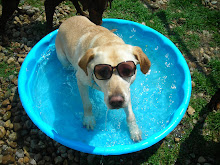 In our final chapter of the Winter Pet Safety series, we're going to talk about common poisons found during the winter months and give you a brief reminder list of safety for your pet. The staff here at Best Friends hope you have found the information provided in our series to be informative and helpful. Have a safe and happy winter with your fur friends!
In our final chapter of the Winter Pet Safety series, we're going to talk about common poisons found during the winter months and give you a brief reminder list of safety for your pet. The staff here at Best Friends hope you have found the information provided in our series to be informative and helpful. Have a safe and happy winter with your fur friends!Let's start with poisons.......never a pleasant thought but necessary to be aware for the safety of your pets. Many traditions can pose a risk to them.
 HOLIDAY FOODS:
HOLIDAY FOODS:Various holiday foods are toxic to your pets, including chocolate, alcohol, macadamia nuts, grapes, raisins and onions. Even the fatty meats and table scraps can cause pancreatitis in dogs. Sharp bones from the holiday turkey and other meats can perforate the intestines. Even if they beg don't give them the bones! If you are having a party where alcohol or any of these foods listed are being served, please think about keeping your pet in a back room or in a crate.
HOLIDAY PLANTS
Common winter plants such as Mistletoe and Holly berries are dangerous if ingested and can lead to gastrointestinal and cardiovascular problems. Lilies are deadly to cats. Poinsettia leaves/stems, balsam/pine/cedar; angel hair (spun glass);
Christmas tree preservatives (don't let your pet drink the Christmas tree water!); snow sprays/snow flock; tree ornaments; super glue; Styrofoam; icicles (tinsel) and crayons/paint.
1) Keep all pets away from Anti-freeze
2) Do not leave your pets outside unattended when the temperature gets below freezing. They are susceptible to hypothermia and frostbite, even death.
3) Short coated dogs should not go outside without a coat or a sweater in very cold weather, except to quickly relieve themselves. Small dogs with short coats are especially vulnerable to the cold.
4) Dogs with fur on the bottoms of their pads often develop ice balls between the pads and toes. To prevent this from hhappening, trim the hair around the feet and toes and apply a small amount of Vaseline, cooking oil, or PAM spray to your dog's feet before heading out. This will prevent the snow from sticking to their feet. (make sure you use edible oil as most dogs will lick their feet afterwards.
5) If your pet walks on salted sidewalks or streets be sure to wash their paws after exposure. Salt is very irritating to footpads and can make them very ill if they lick their feet afterwards.
6) Honk your car horn or bang on the hood of the car before starting it as many times cats or other animals will seek warmth from the engine or under the vehicle.
7) Various holiday foods and plants are toxic to your pets so keep them out of their reach.
If you find you need a place for your pet to play during the day to burn off some of that winter boredom please don't forget our fabulous Doggie DayCamp.
If you have training needs, come speak to our trainer, we have a rotation of classes going on through out the week.
And if your pets coat becomes matted or wet and smelly from too much winter play please come visit our groomers. Just call and make a reservation for any of the above. Our staff here at Best Friends are always happy and willing to please!
You can find out more about toxic plants at the ASPCA Animal Poison Control Website at http://www.aspca.org/site/PageServer?pagename=pro_apcc
The ASPCA has a 24 hour hotline to deal with pet poisoning cases. A fee per incident (with unlimited follow ups) may apply. They can be reached at (888_ 426-4435.
Contributing to this article:
Kyle Raun; University of Minnesota, Veterinary Medicine
University Commons; Naperville Illinois
Partners for Animal Welfare
You can find out more about toxic plants at the ASPCA Animal Poison Control Website at http://www.aspca.org/site/PageServer?pagename=pro_apcc
The ASPCA has a 24 hour hotline to deal with pet poisoning cases. A fee per incident (with unlimited follow ups) may apply. They can be reached at (888_ 426-4435.
Contributing to this article:
Kyle Raun; University of Minnesota, Veterinary Medicine
University Commons; Naperville Illinois
Partners for Animal Welfare









No comments:
Post a Comment